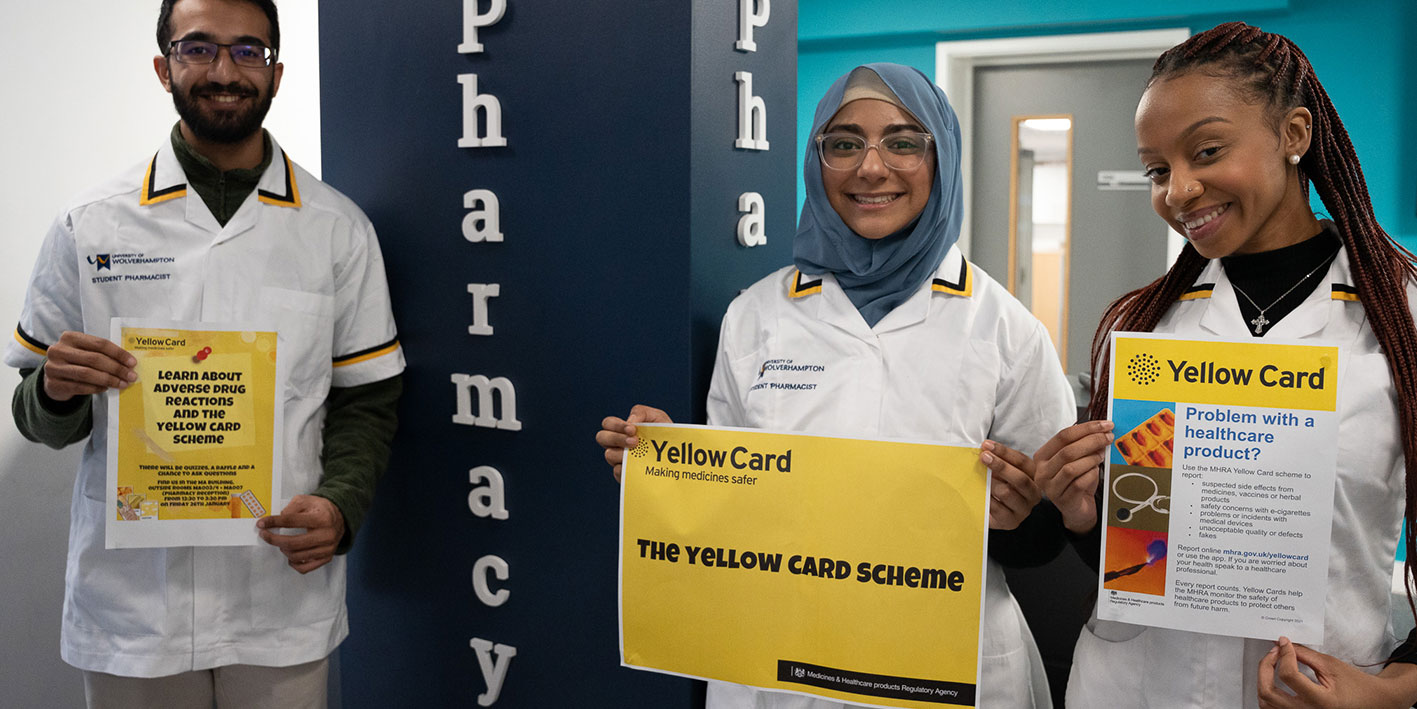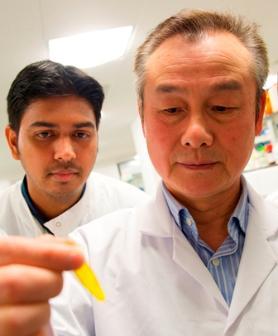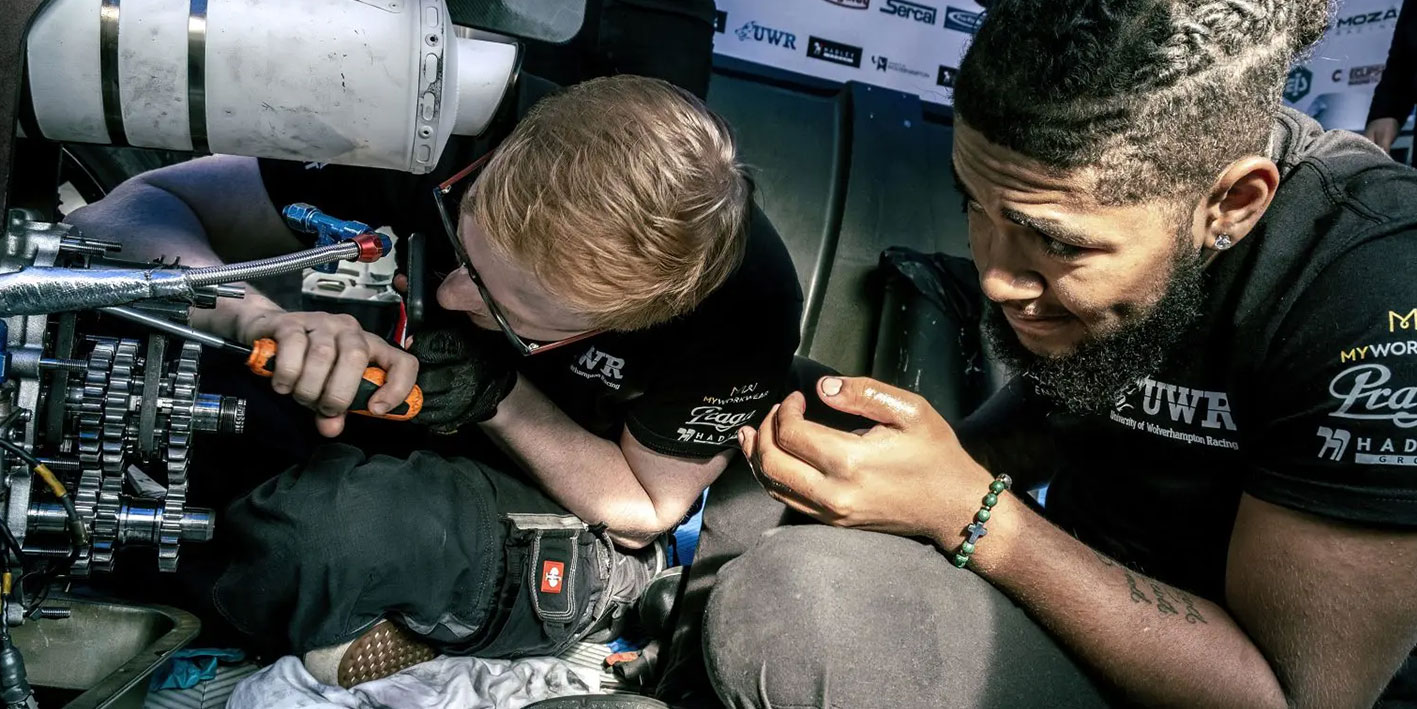
Wolverhampton academic takes cancer research to Parliament
Wolverhampton academic takes cancer research to Parliament
Dr Vinodh Kannappan, postdoctoral research fellow in the Cancer Research Group at the University of Wolverhampton, is attending Parliament to present its biomedical research to a range of politicians and a panel of expert judges, as part of SET for Britain on Monday 7th March.
SET for Britain is a poster competition in the House of Commons, involving approximately 210 early stage or early career researchers, who will be judged by professional and academic experts. All presenters enter into either the engineering, the biological and biomedical sciences, the chemical sciences (chemistry), the physical sciences (physics), or the mathematics session, depending on the researcher’s specialism.
Vinodh, 30, who hails from Wolverhampton, was shortlisted from hundreds of applicants. His poster on research about “Translation of an anti-alcoholism drug into a non-profit anticancer drug using nanotechnology” will be judged against dozens of other scientists’ research in the only national competition of its kind.

He said: “SET for Britain is a unique platform to demonstrate our research to the policy makers of this country. This event provides a fantastic opportunity for early stage researchers like me to interact with other scientists from the UK which may lead to possible collaborations in future. It is great to have our work recognised nationally through this event and I believe we can emphasise the importance of repurposing old drugs for cancer treatment to wider audience.”
The University of Wolverhampton’s Cancer Research Group, with support from the European Union Marie Curie IIF Scheme and British Lung Foundation, has been exploring the use of Disulfiram (DS), an anti-alcoholism drug that has been used for over 60 years, on the basis that it may potentially be used as an alternative cancer treatment.
Professor Weiguang Wang, leading the project at the University, said: “We are at a very exciting stage in our research following collaboration with scientists in Europe, the USA and China which has resulted in our invention being patented by the University. Hopefully this will be translated into treatment in the near future providing cancer patients and the NHS with an economical, affordable and effective treatment.”
Stephen Metcalfe MP, Chairman of the Parliamentary and Scientific Committee, said: “This annual competition is an important date in the parliamentary calendar because it gives MPs an opportunity to speak to a wide range of the country’s best young researchers.
“These early career engineers, mathematicians and scientists are the architects of our future and SET for Britain is politicians’ best opportunity to meet them and understand their work.”
The University of Wolverhampton Cancer Research Group’s research has been entered into the Biological and Biomedical Sciences session of the competition, which will end in a gold, silver and bronze prize-giving ceremony. Judged by leading academics, the gold medalist receives £3,000, while silver and bronze receive £2,000 and £1,000 respectively.
The Parliamentary and Scientific Committee runs the event in collaboration with the Royal Academy of Engineering, the Royal Society of Chemistry, the Institute of Physics, the Royal Society of Biology, The Physiological Society and the Council for Mathematical Sciences, with financial support from Essar, the Clay Mathematics Institute, Warwick Manufacturing Group (WMG), the Institute of Biomedical Science, the Bank of England and the Society of Chemical Industry.
Check out the Cancer Research Group’s recent Academic Blog: http://www.wlv.ac.uk/about-us/news-and-events/academic-blog/2016/january-2016/university-patents-affordable-alternative-drug-in-the-fight-against-cancer/
The team is made up of Professor Weiguang Wang, Dr Vinodh Kannappan, Dr Zhipeng Wang and Professor John Darling.
ENDS
For more information please contact the Media Relations Office on 01902 322003/322736
Date Issued: 22nd February 2016
For more information please contact the Corporate Communications Team.


/prod01/wlvacuk/media/departments/digital-content-and-communications/images-2024/240328-Varsity-Line-Up-Resized.jpg)
/prod01/wlvacuk/media/departments/digital-content-and-communications/images-18-19/220325-Engineers_teach_thumbail.jpg)
/prod01/wlvacuk/media/departments/digital-content-and-communications/images-2024/240404-Digital-Humanities-Training-Resized.jpg)
/prod01/wlvacuk/media/departments/digital-content-and-communications/images-2024/240320-Uzbekistan-Resized.jpg)
/prod01/wlvacuk/media/departments/digital-content-and-communications/images-2024/240229-The-Link-Resized.jpg)
/prod01/wlvacuk/media/departments/digital-content-and-communications/images-2024/240404-Pharmacy-Students-Resized.jpg)

